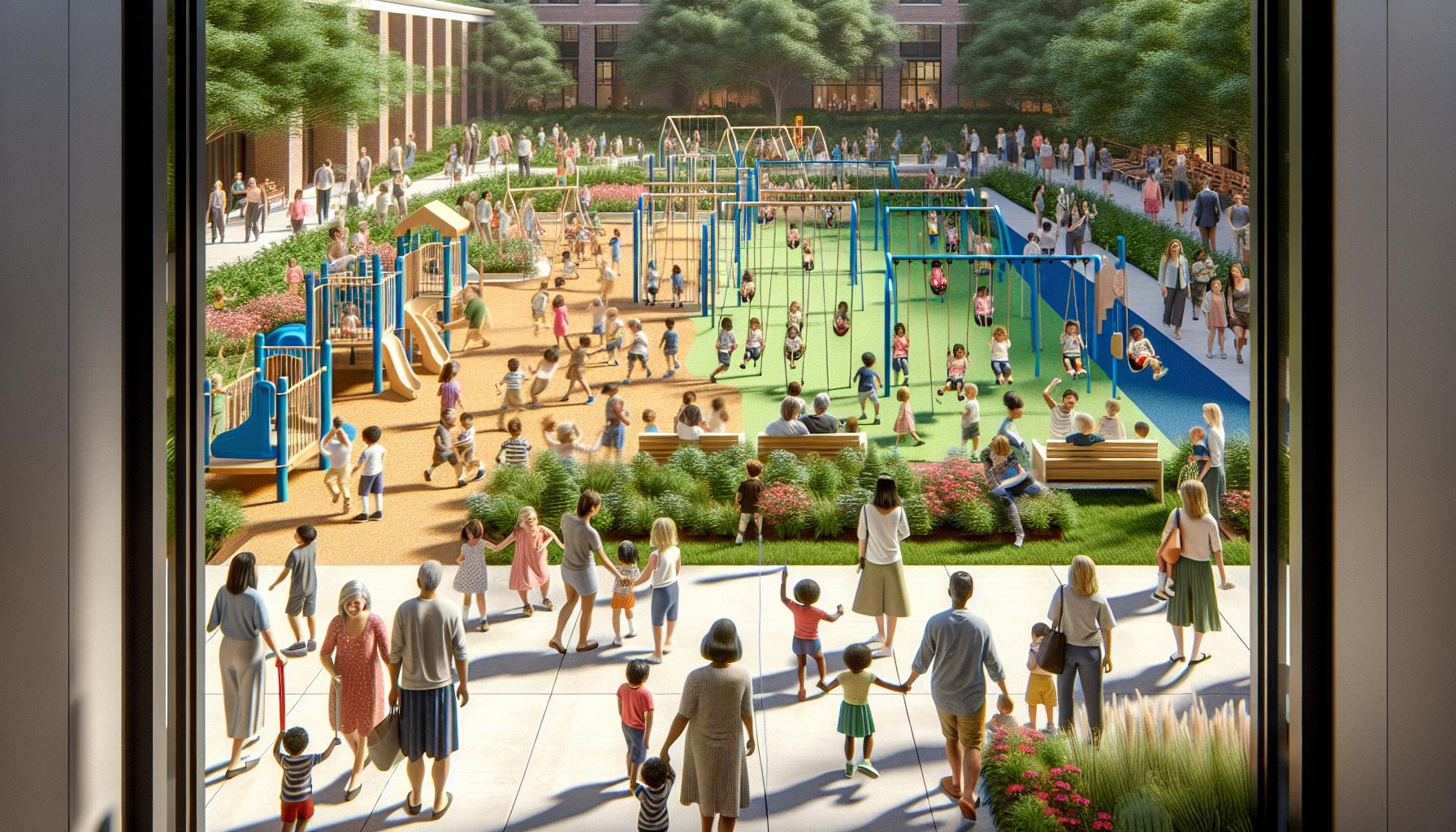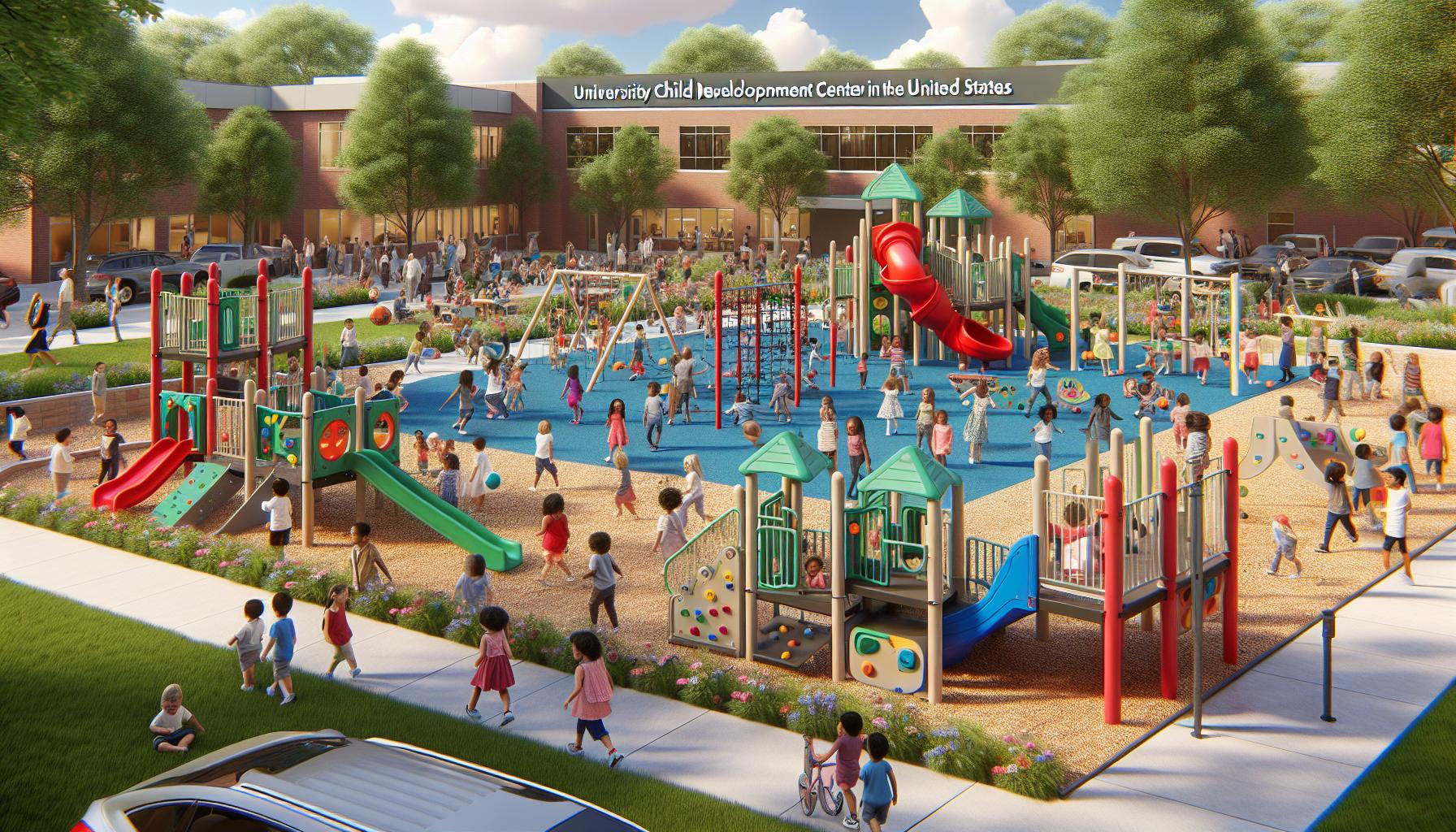When I think about the foundation of a child’s education, the role of a university child development center stands out. These centers aren’t just places for kids to play; they’re vibrant environments where young minds flourish. They provide a unique blend of education and care that supports the cognitive, social and emotional development of children.
At a university child development center, expert faculty and students collaborate to create engaging learning experiences. This hands-on approach not only benefits the children but also enriches the educational journey of future educators. As I explore the various aspects of these centers, I’m excited to uncover how they impact both children and the broader community.
Key Takeaways
Holistic Development Focus: University child development centers prioritize overall cognitive, social, and emotional development through structured learning experiences tailored to children’s needs.
Expert Faculty Collaboration: These centers leverage the expertise of faculty and students to design curricula based on research and best practices, resulting in high-quality education.
Inclusive Community Engagement: By welcoming diverse families and encouraging active participation, university child development centers strengthen community ties and enhance children’s learning outcomes.
Innovative Learning Methods: The incorporation of play-based learning and technology prepares children for future educational environments, fostering creativity and curiosity.
Personalized Learning Experiences: Regular assessments allow for individualized learning plans, adapting to each child’s interests and developmental milestones.
Parent Support and Resources: University child development centers offer parents access to workshops and expert guidance, reinforcing child development practices at home and enhancing overall family engagement.
University Child Development Center
University child development centers serve as crucial platforms for early childhood education, emphasizing holistic development. These centers provide structured learning experiences that enhance cognitive, social, and emotional skills in children.
I recognize the critical role expert faculty play in these centers. They design curricula integrated with research and best practices, ensuring children receive quality education tailored to their developmental needs. Faculty members also mentor students pursuing degrees in education and related fields, fostering a hands-on learning environment that benefits all parties involved.
University child development centers often welcome diverse families, promoting inclusivity and community engagement. By encouraging family participation, these centers support strong partnerships that contribute to children’s learning outcomes. Such engagement fosters a sense of belonging and enhances the educational experience for children and families alike.
Incorporating innovative teaching methods, university child development centers adapt to current educational trends. They often utilize technology and interactive resources, preparing children for future learning environments. These centers continually assess and improve their programs based on research and feedback, ensuring they meet evolving educational standards.
Overall, university child development centers create enriching environments that nurture early learning and development. They play an essential role in shaping children’s educational journeys while empowering future educators through collaborative and practical experiences.
Key Features of University Child Development Centers

University child development centers focus on providing quality education that nurtures children’s development. These centers incorporate innovative methodologies and practical resources to support early learning.
Curriculum and Learning Approach
Curriculum design at university child development centers prioritizes child-centered learning. Research-based strategies guide the curricula, ensuring alignment with developmental milestones. Faculty members utilize a play-based approach, fostering exploration and creativity. The centers also emphasize experiential learning, giving children hands-on opportunities to engage with materials and concepts. Regular assessments inform continuous adjustments to the curriculum, catering to each child’s unique needs and interests.
Facilities and Resources
Facilities at university child development centers feature safe and stimulating environments that enhance learning. Classrooms are equipped with age-appropriate materials that promote exploration and discovery. Outdoor play areas encourage physical activity and social interaction. Additionally, centers often include technology resources, such as tablets and interactive whiteboards, to integrate digital literacy into learning. Access to libraries and resource rooms supports children’s literacy and cognitive growth, ensuring a comprehensive educational experience.
Benefits of Enrolling in a University Child Development Center

Enrolling children in a university child development center offers substantial advantages. These benefits extend to both children and parents, enhancing the overall experience.
For Children
Children experience significant cognitive, social, and emotional growth in these centers. Structured play and innovative learning environments stimulate creativity and curiosity. Research-based educational practices ensure that children engage in age-appropriate activities tailored to their developmental stages. Regular assessments allow for individualized learning experiences, adapting to each child’s unique interests and needs. Access to diverse resources, including libraries and technology, promotes literacy and keeps learning dynamic. Additionally, social interaction with peers encourages teamwork and communication skills, laying a solid foundation for future educational success.
For Parents
Parents benefit from the collaborative environment of a university child development center. Open communication with expert faculty fosters trust and transparency regarding their child’s development. Parents gain access to workshops and resources that enhance understanding of child development theories and practices. Involvement opportunities allow families to connect with educators, resulting in enhanced community engagement. The inclusive atmosphere provides reassurance to parents of diverse backgrounds, knowing their families are welcomed and supported. Parenting guidance from knowledgeable staff equips parents with tools to reinforce learning at home, creating a cohesive approach to child development.
Comparison with Other Childcare Options

University child development centers distinguish themselves from traditional childcare options through their focus on education and developmental support. Unlike typical daycare facilities primarily centered on supervision, these centers provide enriched learning environments that promote cognitive, social, and emotional growth. For example, children engage in structured play designed by expert faculty, which aligns with research-based strategies tailored to their developmental stages.
I find that the curriculum in university child development centers emphasizes child-centered learning. In contrast, conventional childcare centers often adopt a more generalized approach that may not cater specifically to individual needs. The play-based methodology employed at university centers encourages children to explore and discover, fostering creativity, a vital skill that may be overlooked in less specialized settings.
Additionally, the facilities at university child development centers are designed with safety and stimulation in mind. In comparison, other childcare options might not provide the same level of access to age-appropriate materials, outdoor spaces, and technology resources that enhance learning experiences. This focus ensures children can thrive in environments conducive to their development.
Regular assessments in university child development centers offer personalized learning experiences. This contrasts with many traditional childcare environments where individual evaluations may be infrequent or nonexistent. Such assessments help adapt teaching methods and materials to suit each child’s unique interests and capabilities, promoting a more effective learning journey.
I also observe that the collaborative atmosphere in university child development centers fosters open communication between families and educators. This aspect sets these centers apart from typical childcare options, where communication might be limited to basic updates. Here, parents can participate in workshops and gain insights into child development, encouraging a greater understanding of their child’s learning processes.
Furthermore, these centers celebrate inclusivity by welcoming diverse families and involving them in the educational journey. Not all childcare facilities prioritize such engagement, which can diminish community ties and access to resources. The inclusive environment in university child development centers enhances children’s learning outcomes by exposing them to various perspectives and experiences.
In essence, university child development centers offer a distinct advantage over other childcare options by emphasizing a comprehensive, educational approach that nurtures children’s development while involving families in the process.
Crucial Role in Shaping The Early Educational Experiences of Children
University child development centers play a crucial role in shaping the early educational experiences of children. They provide a nurturing environment that goes beyond basic supervision to foster holistic growth. With expert faculty guiding innovative curricula and engaging families, these centers create a vibrant community that benefits everyone involved.
I believe the emphasis on child-centered learning and inclusivity not only enriches children’s lives but also strengthens family ties. As I continue to explore the impact of these centers, I’m excited to see how they contribute to the development of our future generations. Investing in such quality early education is a step toward building a brighter tomorrow for our children and communities.